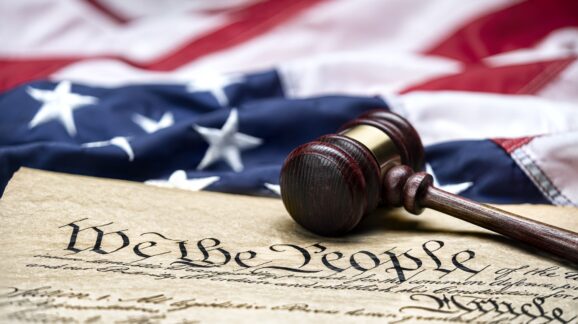The way the Consumer Financial Protection Bureau is funded is unconstitutional

Photo Credit: Getty
Today the Supreme Court hears oral arguments in the case CFPB v. Community Financial Services Association. The appellee correctly complains that its main regulator, the Consumer Financial Protection Bureau, is funded in an unconstitutional manner.
Most agencies get their funding either directly from appropriations drawn from the Treasury or from fees or fines collected from the bodies they regulate. The CFPB does neither. Instead it gets its funding by request (which can only be denied in specific circumstances) from the Federal Reserve.
As I wrote in my 2017 study, The Case Against the Consumer Financial Protection Bureau:
The appropriations process, whereby elected officials fund federal agencies, is a vital check on executive power. Because of the funding mechanism set up under Dodd-Frank, the CFPB is not subject to Congress’ power of the purse. The CFPB’s annual budget amounts to approximately $650 million (2017) that Congress cannot touch or regulate. Instead, the CFPB gets its funding from the Federal Reserve, the dollar amount of which Congress can neither review nor deny.
This shields the Bureau from Congressional oversight. It enabled former Director Richard Cordray to ask “What does that matter to you?” when pressed by a Congressman in 2015 over his lavish spending on a new headquarters.
As the Scalia Law School’s Adam White says in a Wall Street Journal opinion piece today,
The money that the CFPB takes from the Fed is in fact “drawn from the Treasury,” because the Fed’s profits would otherwise go there as required by law. And it isn’t from “appropriations.” The CFPB consistently and categorically described itself as “an independent, non-appropriated agency” and began asserting otherwise—that Dodd-Frank itself was an “appropriations” statute—only when federal courts saw the constitutional problem.
There can be no two ways about this. The Constitution is designed to give the Congress oversight powers over the executive, and the power of the purse is one of those powers. White puts it well:
A Supreme Court decision approving Congress’s CFPB gambit would change the argument significantly. Future Congresses would see the Fed as not only the government’s instrument of monetary policy—the successor to George Washington’s and Alexander Hamilton’s Bank of the United States—but as the administrative state’s blank check.
It would be a convenient way for agencies to avoid the trouble of congressional budget showdowns and spare elected representatives tough votes. But that is no way to run a country, least of all one governed by a constitution. James Madison wrote in the Federalist Papers that Congress’s power of the purse is the best means for constraining “all the overgrown prerogatives of the other branches of the government.”
The Court should find the Bureau’s structure unconstitutional. CEI has been arguing for this outcome since the CFPB was created, such as when we sued the Bureau in 2012.